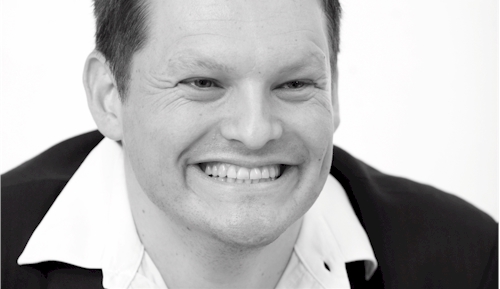On Tuesday afternoon, Internet service provider Afrihost announced it was leaping feet first into SA’s rapidly escalating fixed-line broadband price war.
Though it was partly in reaction to MWeb’s announcement last week that it would offer relatively affordable uncapped Internet products, it was an appropriate move from the company that effectively started the broadband price war in 2009.
TechCentral editor Duncan McLeod chatted to the company’s CEO, Gian Visser, and asked him whether the new, uncapped offerings in the market were sustainable, and what impact local-loop unbundling would have down the line.
TechCentral: Are all these uncapped offerings in the market — from Afrihost and its competitors like MWeb — really sustainable?
Gian Visser: I believe that they are sustainable in the long run. There are many examples overseas that show this model works, and now that SA is getting access to more and more capacity, it should be no different here.
Will you make a profit on your new uncapped offerings? If so, how are you managing to do that? If not, what’s the strategy?
We will not make a profit from day one, but should be able to make a sustainable profit in a few months. We showed we could do this in the capped space where we are now making a profit. [Afrihost took the market by surprise last year when it introduced bandwidth at R29/GB].
Having said that, uncapped is all about your contention ratios. You can have very low ratios, have an excellent service and make no money. Alternatively, you can have very high ratios, offer a lousy service and make a large short-term profit, obviously with unhappy clients in the longer term.
The answer is to manage this to a point where users experience a good service, but the Internet service provider is still able to generate a profit. Internationally, this has meant a ratio of anything between 20 and 50. This is one of the factors we will be managing very closely to find the right balance.
It appears that a full-scale price war is now underway. How will smaller players like Afrihost survive a war of attrition with the bigger players like MWeb and Telkom, assuming it comes to that?
We are reselling one of the largest networks in SA, Internet Solutions’. This business is all about scale and we believe that if we leverage the Internet Solutions network, we can offer competitively priced products. Having said that, it will also depend on what kind of client service an Internet service provider can offer and Afrihost has beaten the incumbents in this space in the past six months.
What was the single biggest contributing factor to the current collapse of broadband prices in SA? And what further impact do you think the East African Submarine System (Eassy) cable, and then, later, the West African Cable System (Wacs), will have on broadband pricing in SA?
Seacom was one of the biggest factors, but then it needed an Internet service provider that was prepared to pass those savings on to consumers. We believe we were that catalyst six months ago when we introduced the R29/GB pricing.
Having said that, most of the money [in this industry] is now being made by Telkom on the ADSL line rental. The fact that it charges you for a telephone line rental, even if you don’t use that service, is not acceptable.
This and Telkom’s IP Connect [a wholesale product for service providers] are still huge barriers to providing affordable broadband. South Africans are probably paying more for local IP Connect bandwidth now than they are paying for international bandwidth, a clear indication that there’s no competition in this space.
Sorting out IP Connect and the local loop will have a much bigger impact than Wacs or Eassy.

How important is it to unbundle Telkom’s local loop? What impact do you think it would have?
Local-loop unbundling promises savings to the consumer, but has proven tough to implement internationally. There are success stories, however, so this should be pursued. In the meantime, our regulator should take action here and bring local-loop prices down to what they should be as a percentage of the total cost. If you take a normal user with a 4Mbit/s line and a 5GB cap, he is currently paying Telkom R544/month (R413 for the ADSL line rental and R131 for the telephone line rental). The same user would be paying his Internet service provider R145/month for his 5GB. Imagine the ADSL line was a hosepipe and the data was your water. This particular user is spending 79% of his monthly bill on the hosepipe, before he has had his first drop of water.
You mentioned that you feel strongly that fair-use clauses need to apply to uncapped offerings. How do you define when a user is no longer using the network “fairly”? And how will you deal with these users?
If there is a real human being at the other end of the ADSL line, they should have a great experience. If there is just a computer at the other end of the ADSL line, running software to automatically download as much as possible in a month, that “user” may not have such a great experience.
Do you think uncapped broadband will become the new norm for the majority of fixed-line users? Will there still be a market for capped products?
Once users start using 10GB or 20GB a month, uncapped will flourish. Until then, capped products still have a role to play in offering users an affordable broadband solution. Capped is especially great if you want a fast line, but don’t download too much per month.
Another big advantage with capped is that you can use the same cap, or account, with a number of different telephone lines. This is great for small business owners who use the same account at the office and at home.
With uncapped, you would need two or more accounts to do this, making it more expensive than capped.
- Subscribe to our free daily newsletter
- Follow us on Twitter or on Facebook





